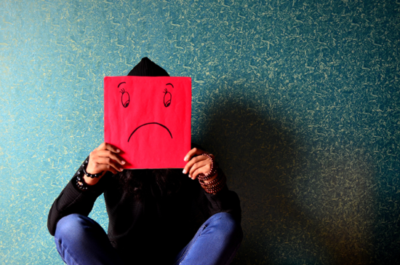Many children do not know how to cope with the world around us or to thrive in today’s society. The lack of coping skills, resilience, and stress levels in our youth is one definitive reason for the rapidly growing problem. Life is not the same as it was when I was a child; the challenging increase of electronics, video games, and the Internet. YES, I did just age myself a bit, all good.
There are many arguments for why the issue is a rapidly growing problem:
The decrease in outdoor playtime. The National Recreation and Park Association state that, “Children today spend less time outdoors than any other generation, devoting only four to seven minutes to unstructured outdoor play per day while spending an average of seven and a half hours in front of electronic media” (1). I was outside all day and only came in when the musical sound of the triangle echoed through the neighborhood. Ok, that was not my mom, but it was our neighbor with 17 children.
Children spend a massive amount of time with their heads in some electronic device, which has been shown in research studies to increase the chance of mental illness. Dr. Jean Twinge, San Diego State University psychologist and Dr. W. Keith Campbell, University of Georgia psychology professor found that after only one hour of screen time that many children exhibited lowered self-control and greater emotional instability than that or their peers (2). All parents, myself included struggle with limiting our children’s screen time. Now that I have a teen, it is only getting harder.
Administrators restricted children’s movement in school. A report by the Centers for Disease Control, which analyzed dozens of studies about how physical activity affects classroom performance, found that “recess and physical education contributed positively to the academic and behavioral performance of students” (3). Kids need more movement in school, not less. Gym class is only a couple times per week, if at all, and recess is shorter than the time it takes me to walk a city block. The lack of social interaction limits children’s ability to learn and increases the likelihood of acting out in the classroom.
There is an increase in media presence, creating fear of current events. More and more evidence points to the increased volume of media messages and a rise in fear and anxiety in children. Video games can and do alter reality for children, combining how frightening the news can be for some and accepting it as a harsh reality for others. A genuine struggle with mental wellness is the result. From March to May 2006, a survey was conducted of 218 Kindergarten through 6th-grade children regarding their fright reactions to the news. Results showed that 35.3% of children reported being frightened by the news (4). We can keep that TV off at home, but as they get older, they are exposed in other ways. For example, my 12 and 14-year-old boys are watching news related reports at school. One example is CNN 10. What is the answer?
Active shooter drills in school are a concerning issue. I participated in a three-hour training for this very purpose, and it was frightening. Barricaded doors did not stop the simulated shooter. We were taught to run away from the shooter in a zig-zag pattern, and many were shot with airsoft guns. This training was an adrenaline-pumping mad rush that left me exhausted for the rest of the day and contemplative long beyond that. Is this a misguided tool or a necessary one? Undoubtedly, the students at Columbine would have been more prepared to exit through a door that was just out of arms reach rather than hide under a desk awaiting the perpetrators’ arrival had they gone through training like this? But what does this do to the mental status of our children? What is the price? A 2018 survey by the Pew Research Foundation determined that, despite the rarity of such events, 57% of American teenagers worry about a shooting at their school (5). I believe this fear goes back to the issue of our media, and despite this being a rarity, we are doing a bang-up job at increasing anxiety levels in more than half of our students.
I could go on and on! Believe me, when I say that I am not immune to these issues, it is why I am tackling this subject today.
My boys love their Xbox. They increasingly dislike school because they are rarely allowed to speak, move about, or converse with their friends. Getting them outdoors outside of their involvement in soccer sometimes requires force. Being a single mom with multiple jobs requires me to schedule family time and put it on the calendar because even I am attached to my electronics more than I care to be sometimes. Modeling? Quite possibly, but this mom has to make ends meet just like millions of other households. I am no perfect mom, and in fact, I may struggle more than others as I do it all alone and make plenty of mistakes; life is hard for most all of us, there is no one answer to all the issues at hand.
Outside of academics, our children should be taught how to be good citizens, practice this at school, help their peers and their community, grow gardens, eat healthy food, teach them why bullying is wrong, and be taught about mental health! Yes, they should also be shown that at home, but that is not always happening. The increase of violence and disregard for human life in society points us to this conclusion.
Speaking from experience, when I am under large amounts of stress, my parenting skills take a hit. My energy oozes over to my kids, and I can see they began to argue and bicker more when I started to pay attention. Their anxieties increase, their social skills decrease; we all temporarily fall.
To be very clear, I will never be one to give parenting advice and just share my own experiences. As with anything in life, take what resonates and ditch the rest.
I share with my boys when I am under stress and why, for a variety of reasons. (I do not share all) Kids have stress! I am in school with them every day; I see it with all the kids. So, in my sharing that I have pressure too, they know that they are not alone. They know I am not perfect. They can visually see me working on my stuff, not ignoring it, not burying it, and it encourages them to learn these things much earlier than I ever did. I teach them tools now. This is one small way that I can empower them to learn what self-love means and that it is one small piece of taking care of their mental wellness.
I have many tools to my disposal, and I teach them as much as they are open to learning.
Laughter and movement are great medicine for anyone feeling overwhelmed or stressed. Be sure to hug your family often and keep the dialogue open, say what needs to be said, and take the time to listen. Live for today, treasure every moment, and love with all your heart.
Sending you all wishes for abundant health and happiness,
Xo Leslie
References
(1) https://www.nrpa.org/uploadedFiles/nrpa.org/Advocacy/Children-in-Nature.pdf
(2) https://psychcentral.com/news/2018/11/11/too-much-screen-time-linked-to-anxiety-depression-in-young-children-and-teens/139931.html
(3) https://www.additudemag.com/the-right-to-recess/
(4) https://www.tandfonline.com/doi/abs/10.1080/01463373.2012.669340?journalCode=rcqu20#.VElEJ2eIiqN
(5) https://www.theatlantic.com/magazine/archive/2019/03/active-shooter-drills-erika-christakis/580426/




